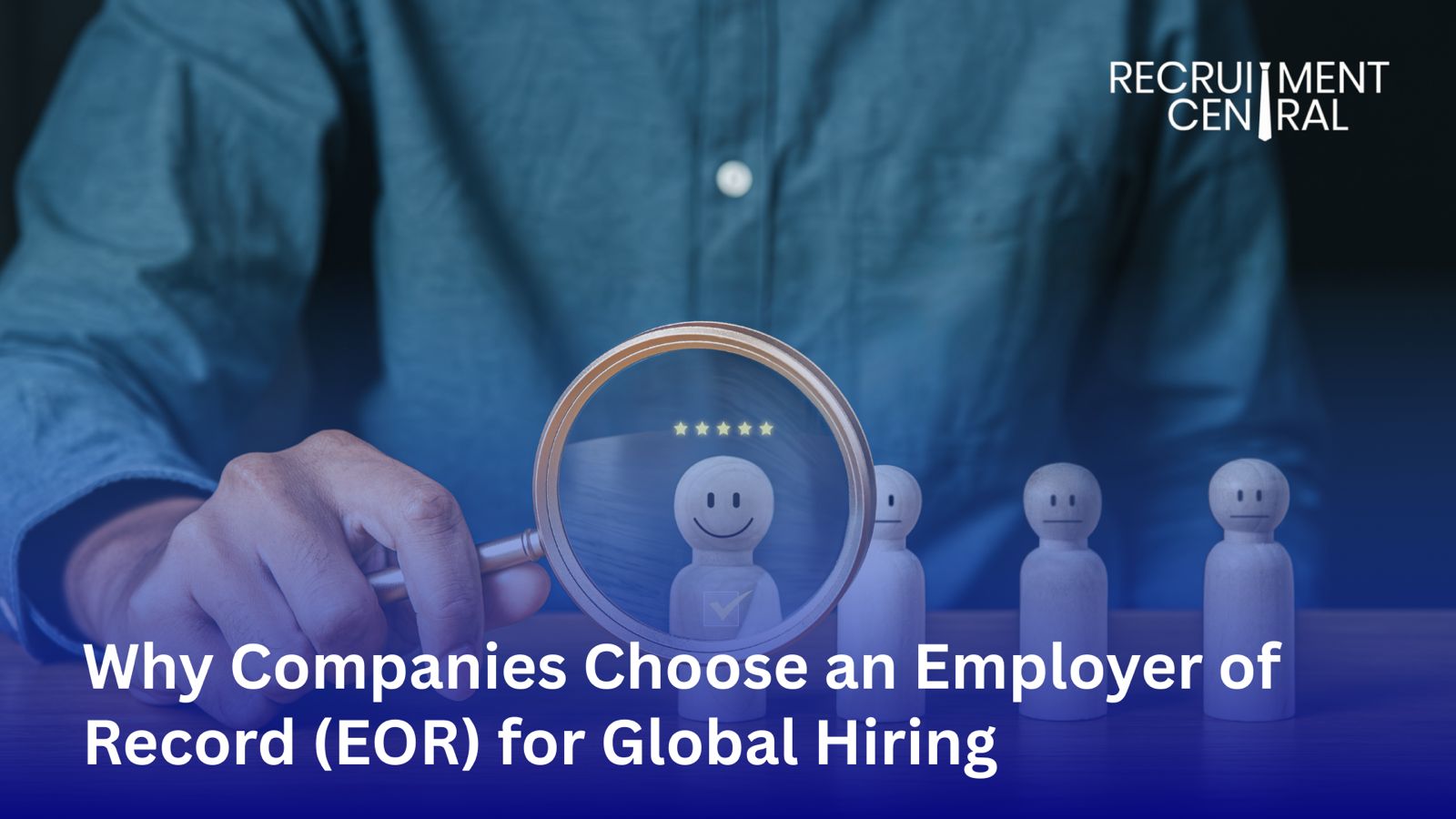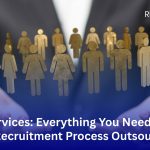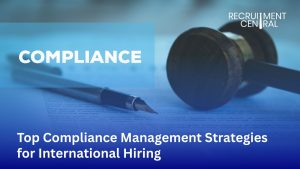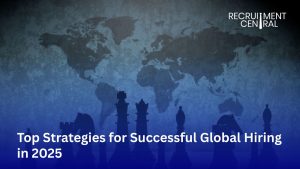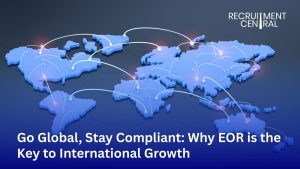Introduction
Global expansion is not something that just big corporations are capable of. Today, many start-ups and scaling firms in tech, SaaS, e-commerce, and professional services are all looking towards Asia-Pacific markets like Singapore, India, Malaysia, and Bangladesh.
The attraction is obvious: these countries are filled with skilled talent and have a huge growth potential. But expanding here also comes with its fair share of challenges.
Hiring abroad means you have to deal with complex compliance rules, long setup timelines, high costs of opening entities, and the very real risk of losing good people because of complex onboarding and weak benefits.
That is why an employer of record is something that can do all of these things for you, without having you worry about red tape or overspending.
What is an Employer of Record (EOR)?
Now the question comes, what is an employer of record? It is a partner you get that officially hires someone for you in another country.
You are still the one directing the employee and deciding what they do every day. You are the one who will be setting the culture and managing their performance; that is all in your hands.
The UR will handle the stuff that can get messy across borders, like payroll, contracts, taxes, compliance, and even benefits.
They are the legal employer on paper, so you don’t have to deal with local labour law or set up an entity in another country.
Why do Companies Choose EORs?
Let’s see some of the many reasons why companies prefer to work with EORs:
Speed to Hire and Fast Market Entry
Time is money in global expansion. If you follow the traditional path of setting up a local entity, it is going to take months, but with an EOR, you can hire in just a few days.
Also Read: Why EOR Services Are Reshaping Global Workforce Strategy
Entity versus EOR set up in the UK
| Hiring Path | Setup Time | Hiring Readiness |
| Local Entity | 4–8 weeks | Hire after approval |
| Through an EOR | 2–5 days | Hire immediately |
Compliance and Risk Mitigation
Asian market has unique employment laws. In Singapore, you have statutory leave and CPF. In India, there is the provident fund, and the list goes on.
If you make one wrong step, like missing a contribution or misclassifying an employee, it can lead to huge fines and even lawsuits.
With an EOR, your payroll gets aligned with the local laws as they evolve, so you don’t have to worry about missing anything.
Cost-Efficient Market Entry
I just told you that setting up a subsidiary in a foreign market takes a lot of time, but that’s not it. It also takes a huge amount of money.
For example, in the UK, getting an entity off the ground can cost between $22,000-$60,000 upfront once you add in legal, accounting, and registration fees.
With an EOR, there are no such setup costs. You just pay a per-employee fee and get hiring done for you immediately.
Entity Vs EOR Costs
| Expense Type | Local Entity | EOR Solution |
| Incorporation Fees | $10k–$30k | $0 |
| Legal & Accounting Setup | $5k–$20k | Included |
| Recurring Maintenance | $5k–$10k/yr | Included |
| Per Employee Cost | Variable | Flat monthly fee |
Simplified HR and Payroll Operations
When you start hiring globally, it means you have to manage multiple payroll systems, benefit providers, and tax filings.
With an EOR, you get all of this consolidated into one integrated platform, which handles:
- Payroll in local currency
- Mandatory benefits
- Tax filing and statutory contributions
- Reporting dashboards
Talent Retention and Employee Experience
Now hiring someone is just the first step. Managing to keep them is where the real challenge lies. That is where EORs add a lot of value. They improve the employee experience by:
- Delivering on time and accurate payroll in local currency.
- Offering market-competitive benefits like health, retirement, etc.
- Providing local HR contacts who answer queries in native languages.
Also Read: 7 Benefits of Using a Staffing Service for Your Business
Strategic Flexibility and Scalability
I think one of the biggest advantages of working with an EOR is the agility. It gives you. You don’t have to worry about long-term commitments; you can move at the pace of your business.
- You can test new markets with just one or two hours before deciding if it’s worth a bigger investment.
- There is also the choice of scaling up or down quickly without going through the trouble of opening or dissolving legal entities.
- Transition smoothly if you decide to set up your own entity. Like this, your team can be shifted over without disruption.
To put it in perspective, let me tell you that dissolving a company in the UK takes three months or more of legal and administrative work. But doing the same with an EOR arrangement can be as simple as giving notice.
Actionable Takeaways
When to Choose an EOR
There are a few moments when bringing in an employer of record is the best thing you can do:
- When you need to hire fast, in days, and not in months.
- You want to avoid more than $20,000 in entity setup costs
- It is the best choice when you are moving into markets with complicated compliance rules, and don’t want the risk of slipping up.
- When you want to keep your best people by offering benefits that match local expectations.
The Four Pillars of EOR Decision Making
At the end of the day, most companies choose an EOR because of four simple reasons:
- Speed: You can hire within days
- Compliance: With an EOR, you can avoid costly legal risks because it will take care of compliance for you.
- Cost efficiency: This way, you don’t have to spend a lot of money on setting up new entities.
- Retention: Your employees get strong benefits and local support through an EOR, and it keeps them loyal.
Conclusion
If you ask me, the choice is pretty clear. An employer of record is the best and smartest way to grow. Many companies have used EORs to move faster and stay on the right side of local laws.
If you’re thinking about expanding into the Asia Pacific, an EOR makes it simple for you. You don’t have to waste months or thousands of dollars on setting up new entities. You just hire, get started, and focus on growing your business.


